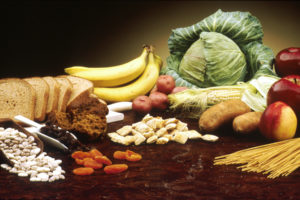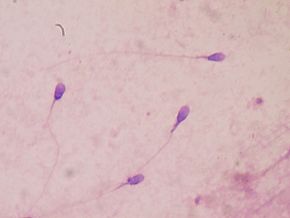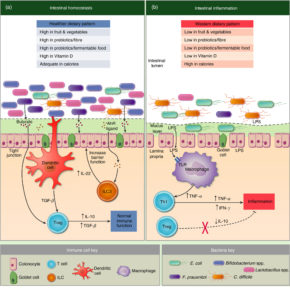 Whether one eats organic foods or non-organic foods does make difference, even when eating a healthy Mediterranean style diet. A recent study found a difference is in the amount of pesticides ingested, with much less in the organic diet. Which makes sense.
Whether one eats organic foods or non-organic foods does make difference, even when eating a healthy Mediterranean style diet. A recent study found a difference is in the amount of pesticides ingested, with much less in the organic diet. Which makes sense.
A Mediterranean style diet emphasizes fruits, vegetables, whole grains, nuts, and legumes - thus lots of produce and fiber, much more than in a Western style diet. However, the study found that just 2 weeks of a Mediterranean diet with either organic foods or non-organic (conventional) foods made a huge difference in the amount of pesticides ingested. They measured this by looking at pesticide residues excreted in the urine.
In persons eating an all organic Mediterranean style diet 91% lower pesticide residues were excreted in the urine when compared to those eating a non-organic Mediterranean style diet! The study also showed that pesticide exposure actually increased in 1 group (the non-organic Mediterranean diet group) when compared to their normal non-organic (conventional) Western diet.
Participants (British postgraduate students, all adults) in a small study ate their normal Western diet (e.g., hamburgers, french fries) both before and after a 2 week period in which they ate a Mediterranean style diet (e.g., Greek salad, sweet and sour chicken, vegetables, and whole grain rice). During the Mediterranean style diet phase (the middle 2 weeks) all foods eaten by one group (13 persons) were organic, and in the second group (14 persons) they were all non-organic (conventional).
Other studies have also found similar findings (organic foods lowers pesticide levels in body), and lower incidence of cancer in those eating organic foods.
Bottom line: Yes, a Mediterranean style diet (whether non-organic or organic) is still considered healthiest for us all sorts of ways, including our gut microbiome. But.. try to eat as many organic foods as possible to lower exposure to all sorts of pesticides.
Excerpts from Beyond Pesticides: Unless You Go Organic, Switching to ‘Healthier’ Mediterranean Diet Increases Pesticide Exposure Three-fold
Replacing a modern, ‘western’ diet of highly processed foods with a Mediterranean diet filled with conventional, chemically-grown fruits and vegetables triples exposure to toxic pesticides, according to research recently published in The American Journal of Clinical Nutrition. However, this disturbing change can be eliminated by eating a Mediterranean diet consisting entirely of organic food, which is not sprayed with synthetic pesticides. ...continue reading "Pesticides and the Mediterranean Style Diet"

 Those who enjoy a little "potty humor" will like the results of a recent
Those who enjoy a little "potty humor" will like the results of a recent  The results of a
The results of a  Great news for men who eat a Mediterranean style diet!
Great news for men who eat a Mediterranean style diet!  Are we heading toward a time in the not so distant future when all men are infertile? (Due to exposure to all the endocrine disruptors around us.)
Are we heading toward a time in the not so distant future when all men are infertile? (Due to exposure to all the endocrine disruptors around us.)  Researchers are now seriously investigating and finding evidence that microbes may be causing Alzheimer’s disease. This approach is rapidly finding support in the medical field, and may lead to possible ways to treat or prevent the disease.
Researchers are now seriously investigating and finding evidence that microbes may be causing Alzheimer’s disease. This approach is rapidly finding support in the medical field, and may lead to possible ways to treat or prevent the disease.  Type 2 Diabetes May Be Reversed With Weight Loss
Type 2 Diabetes May Be Reversed With Weight Loss